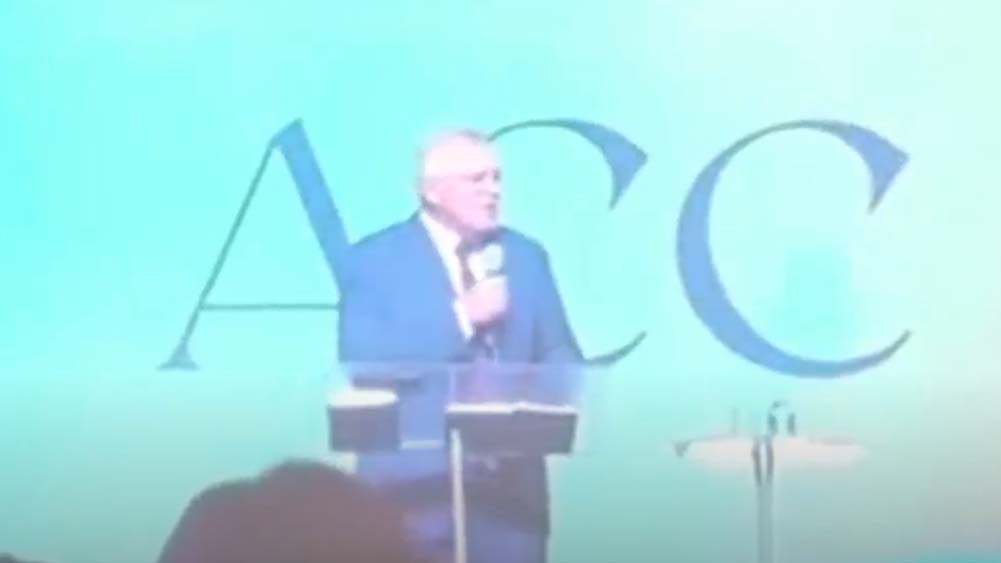Journalist Greg Sheridan has a surprise in his new book Christians: the urgent case for Christians in our World. PM Scott Morrison interviewed by Sheridan outs himself as a Pentecostal that does not speak in tongues.
Pentecostals that do not speak in tongues is a category that will be news to many Christians. But not to most (but not all) Pentecostals.
But with headlines like “From talking in tongues to ‘divine faith’, could Scott Morrison’s religion be a liability?” the media has got things wrong.
Here’s how the PM described things: ‘There have been a lot of changes in the Pentecostal church. It’s mainstreamed a lot. The gifts of the Holy Spirit still take place. It’s part of their theology and belief. I could count on one hand the number of times I’ve heard it preached about. Baptism of the Holy Spirit is basically someone praying over you. I don’t speak in tongues. The preaching is very practical, about how you live your life. Twenty years ago it was more doctrine-heavy. While those things are still there, baptism of the Holy Spirit is more a prayer, a pastor prays over you. If you feel the need to be prayed over, people come and lay their hands on you. As a new MP I used to quite enjoy going to Catholic churches and experiencing the liturgy there. I like the peacefulness of Catholic worship. I also love the energy and the exuberance of the Pentecostal worship.’”
The PM is describing a modern Pentecostalism, that perhaps Australia is becoming famous for, with Hillsong and C3 leading the pack. (Odd that we needed New Zealanders to lead the change.) I call it Modern Australian Pragmatic Pentecostalism, a movement that has shed a lot of its shibboleths.
But perhaps tongues-speaking as one is a surprise, because being spoken, it was an actual shibboleth.
Pentecostal academic, Professor Jacqui Grey, Dean of Theology at Alphacrucis College is not surprised at the PM’s revelation. ”
Global Pentecostalism is not defined by any one denomination but includes a range of groups from diverse backgrounds, such as those from Catholic, Anglican and other traditional denominations,” she tells Eternity.” Global Pentecostalism also includes those that identify as classical Pentecostals, such as those in the Australian Christian Churches. While these groups all share a common experience of the Spirit, there is much variation in their theologies and practices, particularly when it comes to the matter of speaking in tongues. It is difficult to determine how common or uncommon it is for attendees and participants of such diverse groups to practice speaking in tongues.”
That diversity will be found in the Australian Christian Churches, which like the Baptists has a lot of diversity built-in because of the high level of autonomy the local church is given. There are over 1,000 churches in the network. The PM’s church, Horizon, in Sydney’s Sutherland Shire but with a campus in WA and one in Sydney’s Campbelltown, has been a member of ACC since it was founded in 1949
Back then it was Sutherland AoG – with the distinctive “Assemblies of God” Pentecostal branding.
What the PM meant by mainstreaming, has been the dropping of some distinctives or shibboleths. Changing the name of the denomination to Australian Christian Churches, removed one shibboleth.
Jacqui Grey’s College, Alphacrucis, has led the ACC denomination towards having Bachelor’s and Master’s degrees for pastors, with ambitions to become a university. It is now normal for ACC and other Pentecostal ministers to have a degree, that involves learning Greek or Hebrew.
Grey points out that “The ACC constitution does not require attendees or participants of ACC churches to ascribe to the ACC Statement of Faith, which includes Spirit Baptism, however, those ordained within the ACC are required.”
The ACC Statement of Faith which was revised this year says “We believe in the baptism of the Holy Spirit, which is a transformative experience, distinct from and subsequent to salvation. It is available to all believers and accompanied by the initial evidence of speaking in tongues. It results in empowerment for effective witness in the world.”
This means that people like Scott Morrison – a long-term attendee of a Pentecostal church – is not required to hold a particular view of the Holy Spirit.
Eternity understands that he is not alone. There are many Pentecostals who do not believe that tongues-speaking should be regarded as evidence of the Baptism of the Holy Spirit. The clause in the ACC statement of faith quoted was one that some expected might be changed.
(Churches with a membership structure such as the Presbyterian or Baptist churches will require signing up to a statement of faith.)
The easy assumption that Scott Morrison fits a stereotype of Pentecostals is not true. The second-largest branch of Christianity in Australia toes too large, and therefore diverse for that.
Email This Story
Why not send this to a friend?



